

Listen to the Newsletter!
Dear Friends and Colleagues,
We hope you enjoyed a wonderful summer. It’s good to be back. Hopefully, you found time to relax with friends and family, whether at the lake, in the mountains, or on the back deck with a barbecue and a cold beer. In an entirely unplanned twist, three members of the Humanis Calgary team spent a portion of summer in Japan! And while our itineraries never overlapped, we shared a common response to our time in the Land of the Rising Sun. And wow, was that sun hot.
In this month’s post we share some lessons learned from our time in Japan, a place where even the toilets are more attuned to our needs than the average bear. Or is it bare? Heated seats that automatically open and close, myriad spritzing and drying options, and even a noise maker, known as “Otohime,” featured in public washrooms and designed to mask various bodily emanations, offering individuals a greater sense of privacy and comfort amidst even the most communal and uncomfortable of settings.
Indeed, our entire Japanese experience provided a fitting allegory for what a city, a culture, and perhaps less importantly, an executive search firm, can be. And the toilets are just the beginning. In a country where cleanliness is next to godliness, humility is a virtue, and the details matter, I couldn’t help but think about my own business, the city I call home, and the lessons learned (and opportunities missed) along the way.
Trains That Run on Time: The Joy of Punctuality
That the trains are so spotlessly clean and run so impeccably on time isn’t just a commentary on Japan’s near-crippling obsession with perfection, but the ultimate sign of respect to its citizens and visitors. Just as walking late into a meeting signals to those waiting that your time is more important than theirs, it is equally antithetical to the Japanese for a train to arrive at the platform even a second later than scheduled. But it’s about more than timeliness; it’s about what being on time represents. It’s a sign of respect, of keeping your word, and of honouring your promise.
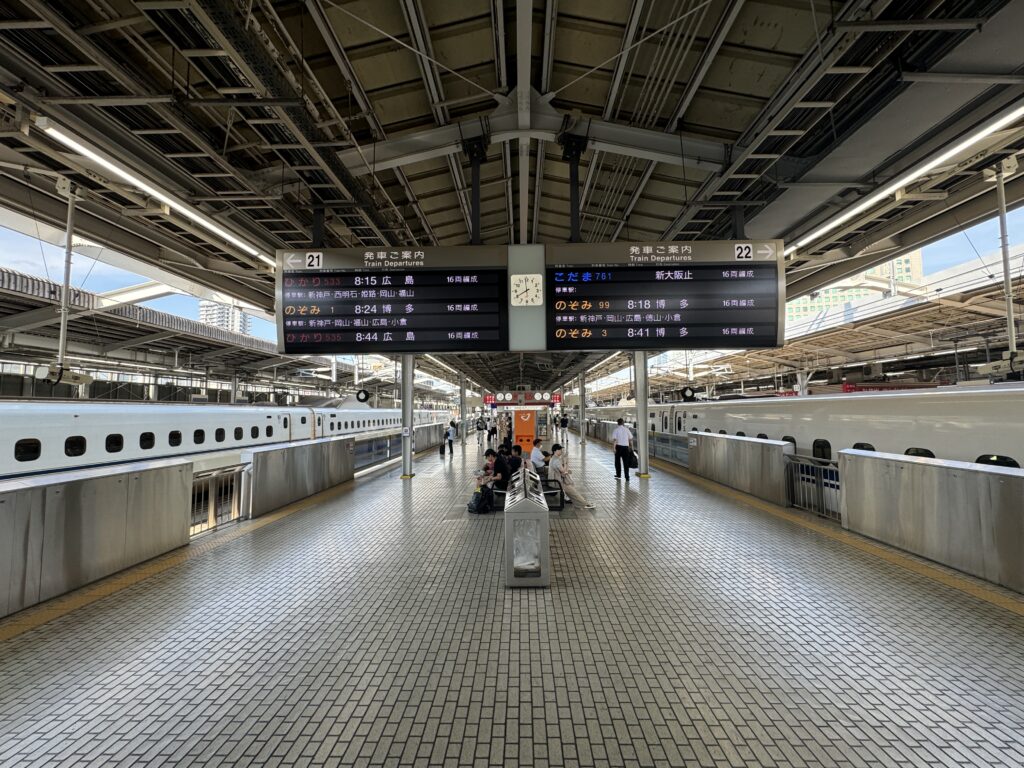
Remarkably, the subway system in the big cities like Tokyo operates no less flawlessly. While back in Calgary we are clutching our pearls over a seven-station LRT expansion, Tokyo’s subway system looks like this:
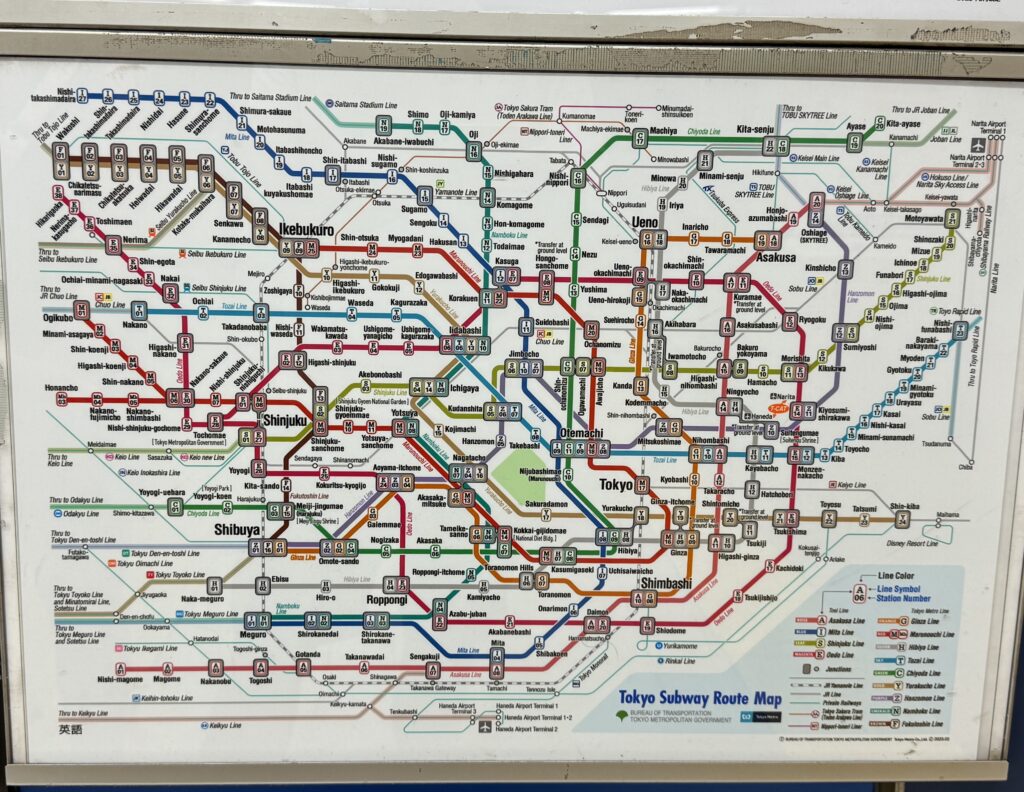
A network of 13 separate lines and 285 stations serving nearly 6 million passengers a day. The trains are spotless, safe, and even feature plush upholstering and much-needed air conditioning. Interestingly, according to the City of Calgary Transportation Department, the LRT had a ridership of about 287,000 per weekday as of the first quarter of 2024. Given the latest population data available—Tokyo at 37,115,000 and Calgary at 1,665,000—the ridership works out to almost the same number—roughly 16% of the population—that rides the system every day. The scale of the Tokyo system surely benefits from the city’s density and tax base, but perhaps it’s the cultural attitudes toward public spaces and services that stand out. Tokyo’s trains are not just a product of resources but of a culture that values public good and adheres to norms that maintain them. Perhaps there’s a lesson in there?
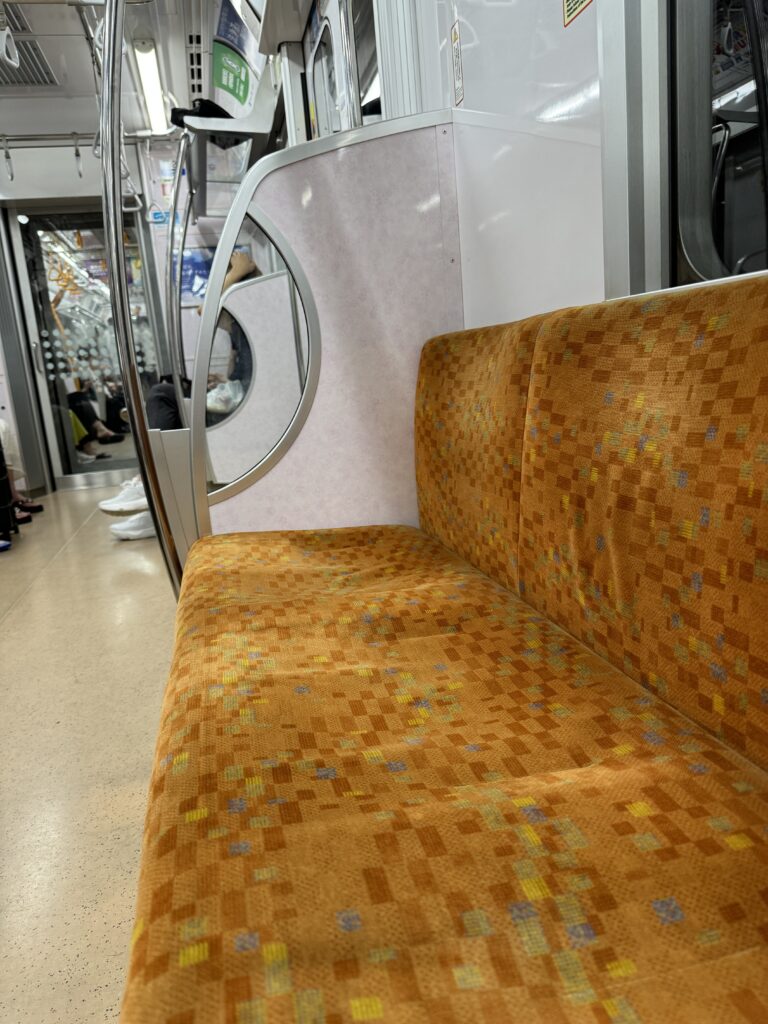
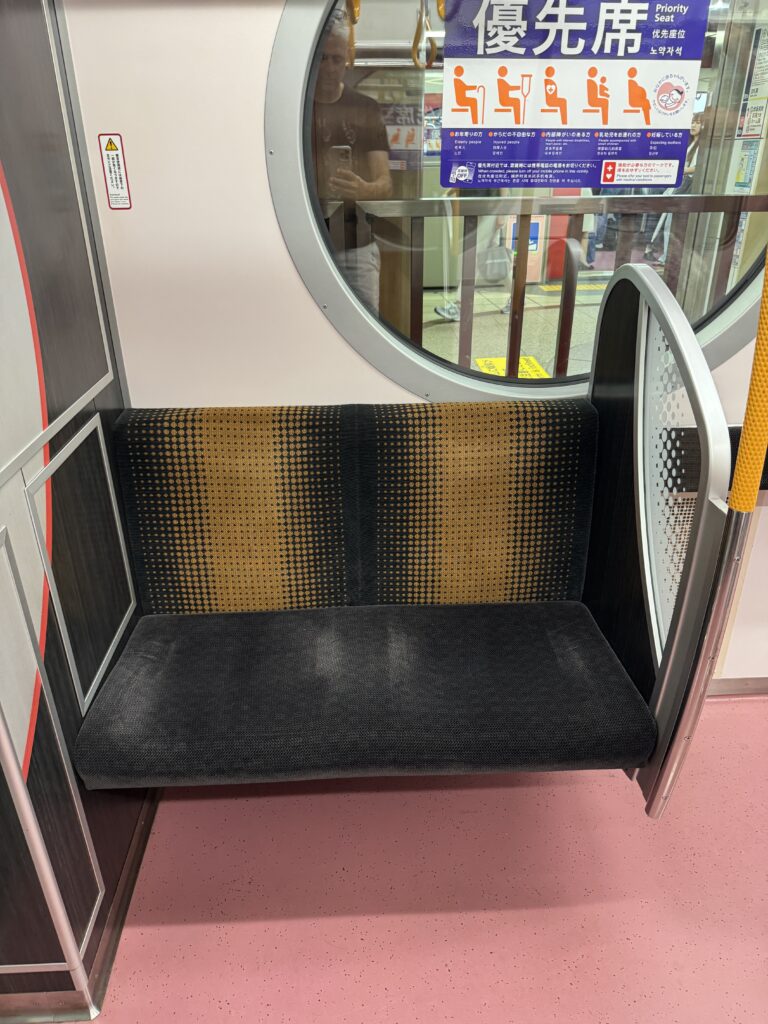
Humility Over Gratuity
In Japan, everyone bows. To say hello, to say goodbye, to say thank you, to acknowledge. It’s the more elegant and refined older sibling of the boorish North American “Uh Huh.” And because they bow, you bow. It becomes reflexive. Initial self-consciousness of appropriating their thing, quickly gives way to the pride of performing the small and simple act of humbly exchanging pleasantries in a polite and meaningful manner. Sure beats “Yo.” “Yo.”
An extension of the humble bow is the absolute prohibition on tipping. They’ll serve you as if their life depends on it, and all they want in return is the satisfaction of a job well done and the sense of honour that accompanies the act of completing the task.
On a couple of occasions, the transfers arranged for us from the hotel to a particular train station included, initially to our great delight but eventually not without a degree of self-consciousness, an accompaniment by the driver, not just to the station but through the station, onto the platform where it still wasn’t enough (for them) to leave us at the clearly marked entry area for the exact train car soon to arrive. No, they would wait patiently in the sweltering heat until our train pulled in, we’d safely boarded, and they knew we were seated; watching and bowing as we pulled away like kids on a school bus off to camp. I’m not naïve enough to believe the feelings welling up in our chaperone just then were not at all unlike the feelings of a parent in that exact moment (good riddance!). Yet, even that cynical observation is likely unfair, imposing as it does my relatively honourless North American viewpoint on a person and a nation of great honour and respect.
Incredibly, though not surprisingly, through all of that, all the greeters and meeters and seaters everywhere we went, performed their task without so much as a whiff of an expectation of a gratuity. In fact, tipping in Japan is frowned upon because it’s seen as unnecessary and even disrespectful in some contexts. Providing excellent service is considered a standard part of the job, and it is expected that workers will take pride enough in their work. Tipping, we were advised, can imply that the service provided was somehow exceptional or that the worker is not adequately compensated by their employer, which is seen as an insult.

In Japan, good service is viewed as a duty rather than something that needs to be rewarded with extra money. The idea is that the customer is already paying for the service, and the price reflects what is considered fair compensation. Therefore, adding a tip could disrupt the balance of the transaction and create discomfort. Spare a thought the next time your local coffee shop barista disinterestedly twirls the iPad with tipping options starting at 20%.
It’s no coincidence that upon returning from Japan, we adopted elements of this philosophy to our firm’s operations. While our clients long ago adopted the ‘no tipping’ policy (surely out of a concern for offending us), we made some subtle adjustments to our fee structure that include more built-in offerings and fewer ‘extras’ as part of the fee paid for our work.
The Magic of Storytelling: Crafting a Narrative that Sticks
Japan is a land of stories—mythologies, legends, and tales that have been passed down for centuries. Whether it’s a heroic samurai or a mischievous spirit, the Japanese understand that stories shape how we see the world. We visited countless shrines across the country during our time there, each with its own unique back-story. There were shrines for love, money, exams, and even hair growth. The idea: every aspect of life is worthy of attention and respect, and one of the best ways to, err, enshrine that is through storytelling.
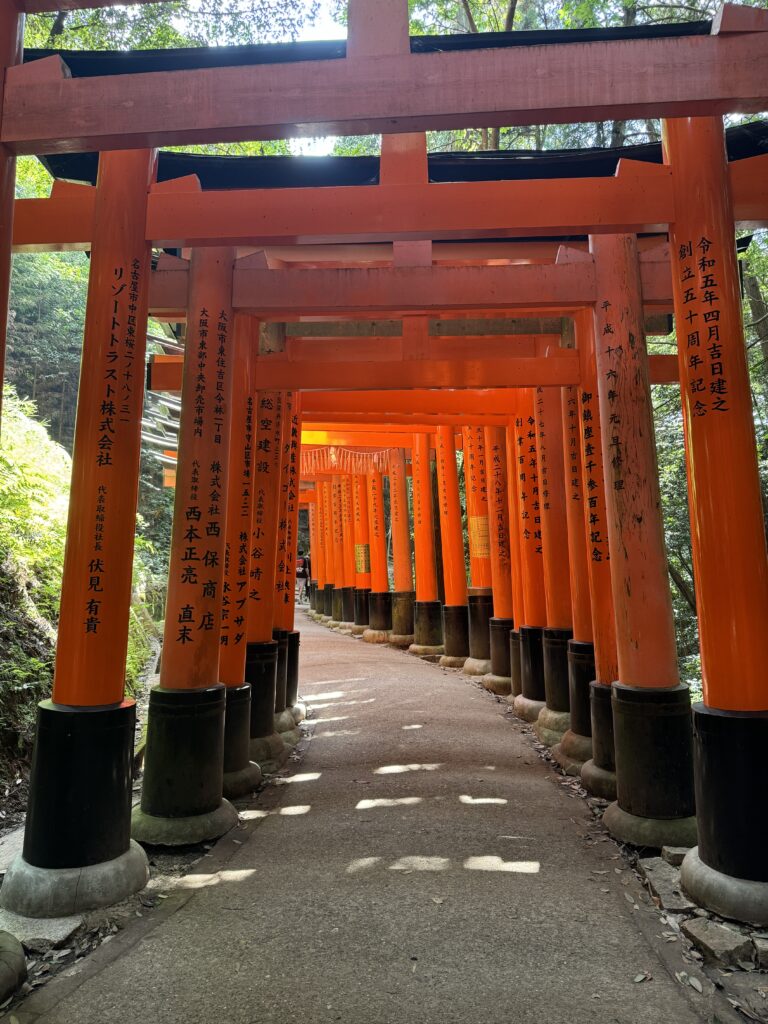
We’ve taken this to heart in our work as well. Executive search is actually a bit of a misnomer. The ‘search’ used to be the hard part. Today, we can all be found rather easily. The magic is in the storytelling. The advocacy. The ability to convey a compelling client story to a cautious candidate and a candidate’s credentials to a skeptical client.
Just as riding the Tokyo transit system caused me to reflect on our Green Line, a long and sordid story unto itself, so too did a couple other memorable moments. Most notable, perhaps, was how often Japanese people lit up at the mention of Calgary. And, with apologies to our good friends at the Calgary Stampede and Tourism Calgary, it wasn’t the cowboy hat or the Rockies they rejoiced in. It was the Olympics. Almost without fail, the mention of Calgary conjured the ‘88 Games. Being in Japan during the Paris Olympics, in a city—Tokyo—that hosted the last summer games in 2021, enjoying much of the infrastructure and legacy that benefitted the city as a result of those games, brought back painful memories of our city’s most unfortunate decision to reject the opportunity to host the world two winters from now. I’ve written about this before so won’t belabour the point.
A final, far more painful memory was experienced in Hiroshima. Standing at “A-Bomb Dome,” where, on August 6, 1945, the atomic bomb was detonated in the air at an altitude of 600 meters, almost right above the spot where we stood, was a powerful moment. The explosion by a single bomb claiming the lives of over 200,000 people and instantly turning a city area of about a 2-km radius into ashes. Pausing at the Bell of Peace and reading the inscription, “As a symbol of Hiroshima Aspiration: Let all wars be gone, and the nations live in true peace!” The irony amidst the news of the day was not lost. Aspirational indeed.
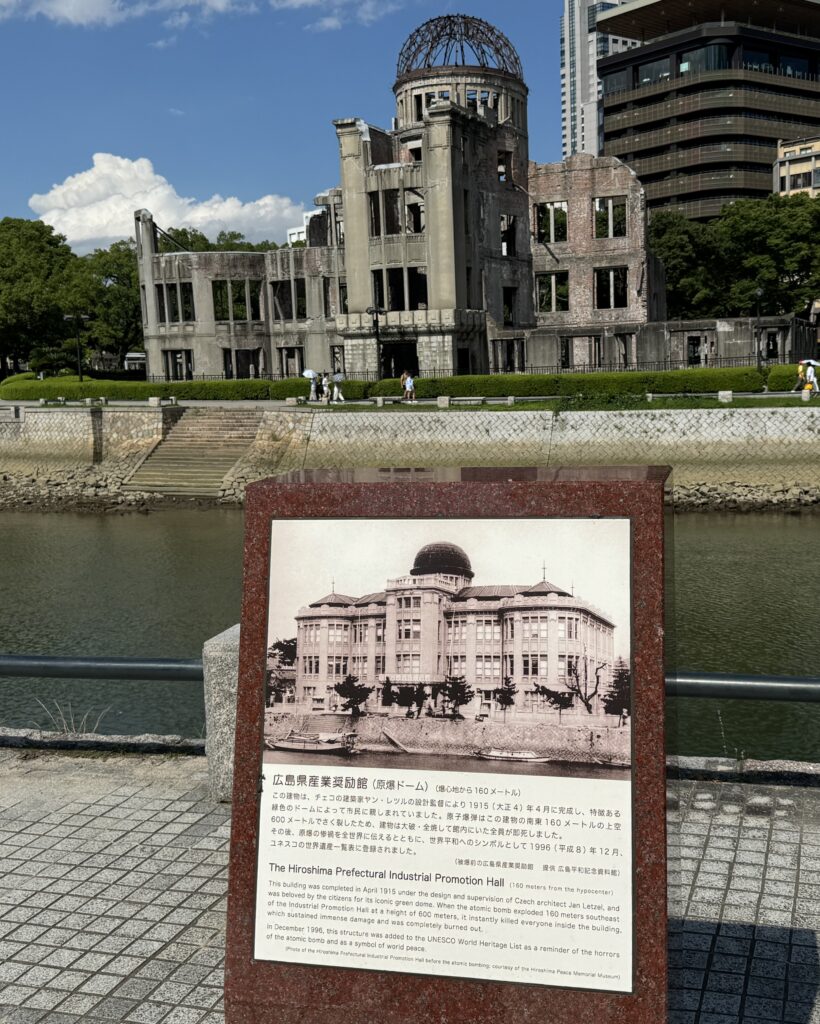
Beyond these more existential reflections, Japan taught me a few things about running an executive search firm. It taught me that the little things matter more than we realize. Whether it’s the cleanliness of a bathroom, the punctuality of a train, the utter perfection in a piece of sashimi, or the humility of a bow, these details add up to create a culture of excellence. A reminder that we’re not just delivering a service—we’re delivering an experience.
Of course, it should be noted, not unlike Japanese culture, that experience is delivered through a hierarchical and leveraged system not that different from any professional services firm or corporation in these parts. The difference, I think, being their motivation, tied to values of respect, responsibility, and communal harmony above all else.
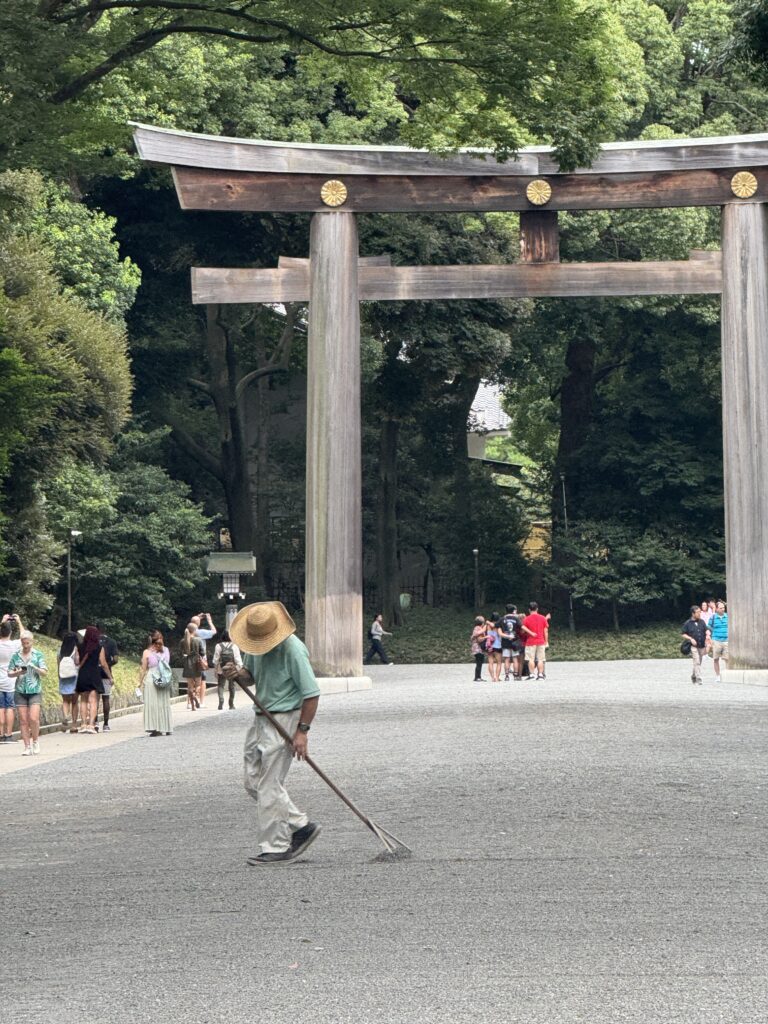
While the emphasis on meticulous order and cleanliness can lead to exceedingly high standards where workers feel immense pressure to maintain these ideals, often at the cost of personal well-being (resulting in long working hours, stress, and a culture of overwork—google the concept of karoshi)—it is not entirely accurate to say that workers are universally “taken advantage of.” Most in Japan appear to take great pride in their roles and see the maintenance of these standards as a reflection of their commitment to their jobs and society. The strong work ethic and dedication are often viewed as virtues, and there is a cultural understanding that everyone plays a part in upholding this collective responsibility.
And you see it everywhere. As we walked the streets of the bustling Ginza district of downtown Tokyo at rush hour, not a single car horn could be heard. As though honking at a fellow citizen would transcend mere rudeness and introduce something so aggressively adverse to the entire societal structure that it might well crumble at the sound.
Or, as my wife and I participated in a traditional Tea Service, where the Teishu (“tea master”) prepared and served the tea and guided us through the many rituals and etiquette of the ceremony, one which involves not only the preparation of tea but also a deep understanding of aesthetics, hospitality, and mindfulness. It struck me that the four pillars of the ceremony—Harmony, Respect, Purity, Tranquility—ancient though they were in that context, would serve as refreshingly modern Values in our business. And you know what else was refreshing? As they dressed us in the traditional kimonos reflecting the occasion and the season, echoing the seriousness and respect associated with the ceremony, at no point did we feel as though we were somehow appropriating their culture as much as we were celebrating it, a feeling reflected in their eyes and their pride and their desire to snap, like a million, photos of us in the traditional garb.
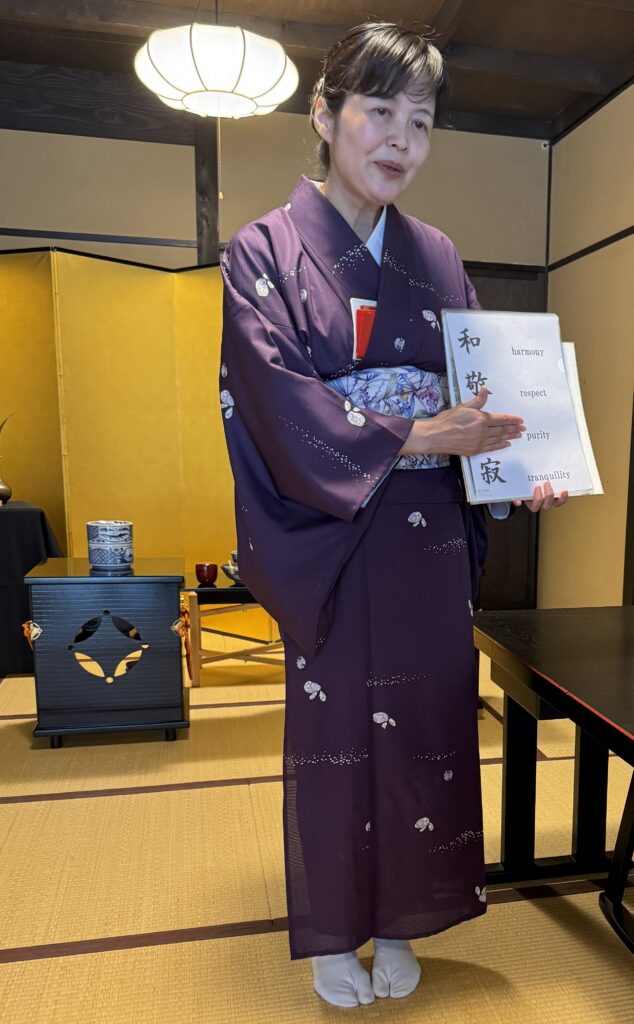
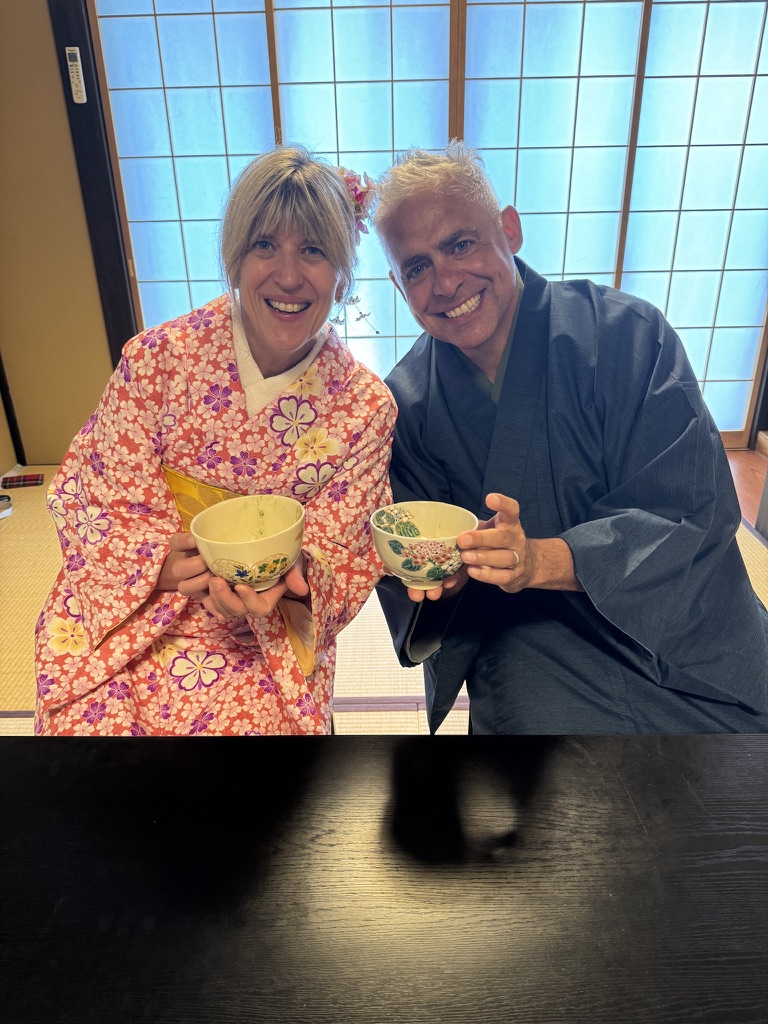
And though, by the end, we felt a world away and, uncharacteristically, quite ready to return home, our final night of the trip reminded us that for all the differences, the world is a very small place. Our server at the remote Ryokan (a traditional Japanese inn), whose name was Asahi, upon learning of our Alberta home, explained that his brother had just the day prior been displaced from his by the fires in Jasper, where he was living while working at the Jasper Park Lodge. It was a remarkable bridge back to the world we had left behind a mere 16 days earlier. In that moment, thousands of miles from our familiar surroundings, we were reminded of the threads that connect us all, no matter where we find ourselves. A sense of kinship, as if the distance between Japan and Alberta had suddenly shrunk to nothing. And a poignant reminder that even in the most distant and unfamiliar places, the ties of humanity bind us together, making the world feel intimately small and connected.
Which brings us back to the marvel of the Japanese toilet. For it is more than just a toilet—it’s a symbol of how innovation can turn even the most mundane task into a moment of joy. Who knew that sitting on a heated seat could make you question everything you thought you knew about comfort and the world around us?
And so, we approach our work with a renewed spirit. We’re not just about transacting. We’re about reimagining the executive search and advisory process to make it as smooth, efficient, and downright enjoyable as possible. Whether it’s leveraging the latest technology or finding new ways to connect with top talent, we’re always looking for that next “heated seat” moment—something that makes you think, “Why wasn’t it always like this?”
I could go on. But I fear I’ve over-stayed my welcome. How Japanese of me. Suffice to say we’ll be importing more of the lessons learned as we strive to channel our inner Japan—efficient, respectful, and always striving for that perfect balance between tradition and innovation.
Kansha shimasu,
Adam